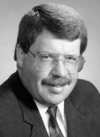
Vol. 75, No. 11, November
2002
Drawing the Line on Discovery Abuse
The line between zealous advocacy and unethical
behavior in the discovery process is fuzzy at best. Generally, if the
conduct advances the client's interests, it is unlikely to be considered
a violation of the Supreme Court Rules.
by Dean R. Dietrich
 Dean R.
Dietrich, Marquette 1977, of Ruder, Ware & Michler
L.L.S.C., Wausau, is chair of the State Bar Professional Ethics
Committee.
Dean R.
Dietrich, Marquette 1977, of Ruder, Ware & Michler
L.L.S.C., Wausau, is chair of the State Bar Professional Ethics
Committee.
Question
I have noticed in my litigation practice that lawyers are very
aggressive in their use of discovery procedures almost to the point of
harassment instead of conducting necessary discovery for the lawsuit.
Aren't there rules that govern this type of conduct?
Answer
Many authors have questioned the alleged lack of professionalism
among lawyers in the use of discovery as part of "guerilla lawyer
tactics." Others have suggested that behavior that borders on harassment
is merely a part of the "zealous representation" that each lawyer is
obligated to provide for clients. Drawing the line between "zealous
representation" and unethical behavior is not easy.
There are several Rules of Professional Conduct adopted by the
Wisconsin Supreme Court that address the behavior of lawyers in this
setting. SCR 20:3.2 provides that "a lawyer shall make reasonable
efforts to expedite litigation consistent with the interests of the
client." This rule, unfortunately, is open to diverse interpretations of
the obligation to "expedite litigation" as compared to the obligation to
act "with the interests of the client." This rule offers little guidance
or direction to lawyers.
SCR 20:3.1 gives perhaps more guidance. This rule provides that a
lawyer, in representing a client, shall not "file a suit,
assert a position, conduct a defense, delay a trial or take other action
on behalf of the client when the lawyer knows or when it is obvious that
such an action would serve merely to harass or maliciously injure
another." (SCR 20:3.1(a)(3).) There is, of course, a subjective
component of this rule that requires determining if the conduct is known
to be undertaken merely to harass or if it is obvious that the action is
taken merely to harass another.
There are very few reported decisions under SCR 20:3.1 to offer
further guidance to lawyers about their conduct during discovery
proceedings. In one reported decision, part of the reprimand issued to a
lawyer was based upon the lawyer's use of misrepresentation to obtain
information that could have been obtained properly through the discovery
process. In another decision, a Wisconsin lawyer was disciplined for
filing several actions that were unsupported by the facts and
constituted conduct of a harassing nature.
SCR 20:3.4, known as the "fairness to opposing party and counsel"
rule, also places requirements upon lawyers that affect lawyers' conduct
during the discovery process. Under this rule, lawyers shall not
"unlawfully obstruct another party's access to evidence or unlawfully
alter, destroy or conceal a document or other material having potential
evidentiary value." More particularly, lawyers shall not "make a
frivolous discovery request or fail to make reasonably diligent efforts
to comply with a legally proper discovery request by an opposing party
... ." This rule's requirements place a greater obligation on lawyers to
make legitimate and reasonable discovery demands during a pretrial
discovery process and specifically prohibit the strategy of frivolous
discovery demands, which often is viewed as harassment.
The use of discovery to create unnecessary burdens on an opposing
party to drive up the cost of or discourage litigation certainly is a
questionable representation strategy under these rules. Quite often,
however, a lawyer can justify the excessive discovery demands as simply
part of the process of "zealous representation." Determining whether a
lawyer has crossed the line from aggressively representing the client to
using discovery for harassment purposes is almost impossible to
quantify. Much of the policing of this issue depends on the standards of
the individual lawyer. The Wisconsin Supreme Court also addressed this
issue when adopting SCR Chapter 62, entitled "Standards of Courtesy and
Decorum for the Court of Wisconsin." Under these standards, which are
not enforced by the Office of Lawyer Regulation, lawyers shall "abstain
from pursuing or opposing discovery arbitrarily or for the purpose of
harassment or undue delay." This requirement, at least, allows the
courts to oversee potential problems with discovery abuse, although
little action has been taken to date.
The use of "guerilla lawyer tactics" has not been quantified or
clearly defined in ethics decisions. As noted by the Illinois State Bar
Association in its Opinion No. 01-06, "the rules do not allow tactics
designed merely to injure or harass a third party that have no other
legitimate purpose in advancing the position of a lawyer's client." The
question will always be whether the conduct that occurred was, in some
manner, advancing the client's interests. If so, it is not likely that
the conduct will be considered a violation of the Supreme Court Rules.
Again, we can only hope that the professionalism of our Wisconsin
lawyers will eliminate the types of discovery tactics that you have
experienced.
Wisconsin
Lawyer
